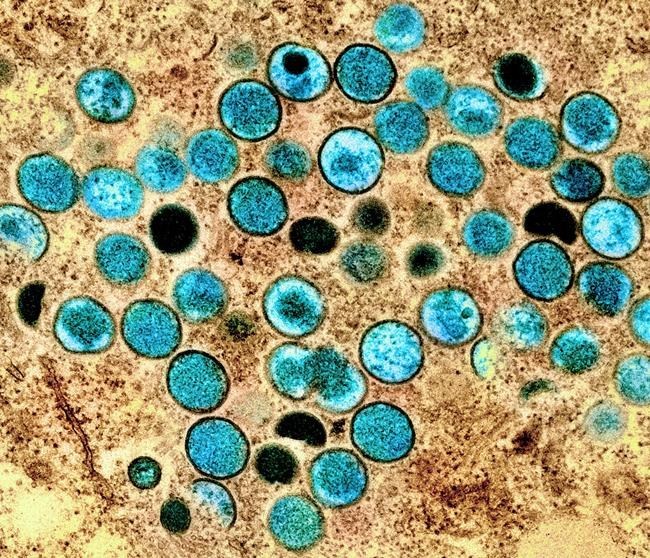FREDERICTON — Health officials in New Brunswick are reporting the province's first confirmed case of monkeypox.
The infected individual remains in isolation, and contact tracers have been called in to determine the source of the infection and notify close contacts.
Dr. Jennifer Russell, the province's chief medical officer of health, issued a statement late Friday advising New Brunswickers that the virus spreads by close contact with infected humans or animals and does not spread like COVID-19.
"The general public is not at a similar level of risk but should still be aware of how to reduce their personal risk," Russell said in a statement.
The monkeypox disease comes from the same family of viruses that cause smallpox, which the World Health Organization declared eradicated around the globe in 1980. Cases of monkeypox began to appear around the world in non-endemic countries in May, and the WHO declared the outbreak a global health emergency late last month.
The number of Canadian monkeypox cases surpassed 1,000 just this week, though there are early signs the virus may now be spreading at a slower rate.
The Public Health Agency of Canada says the majority of domestic cases are among men who reported intimate sexual contact with other men. Having multiple sexual partners may increase one's overall risk, but the agency says the risk of exposure is not exclusive to any group or setting.
On Friday, Canada's chief public health officer said plans are in the works to sift through Canadian sewage to test for monkeypox. Dr. Theresa Tam said the National Microbiology Lab in Winnipeg has developed a method that will use the infrastructure set up to track COVID-19 through wastewater testing.
Experts say the COVID-19 pandemic proved how useful wastewater testing can be, especially when it comes to early detection.
This report by The Canadian Press was first published Aug. 13, 2022.
The Canadian Press




